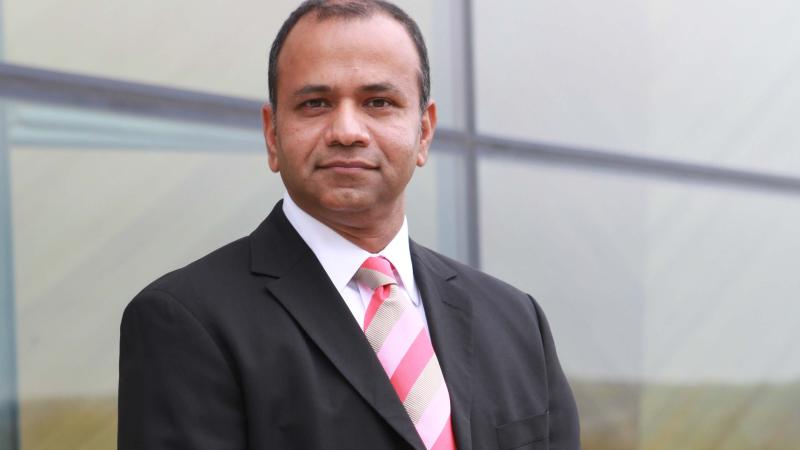November 14, 2016

The director of the Rensselaer Polytechnic Institute Center for Biotechnology & Interdisciplinary Studies (CBIS) will deliver the inaugural address today in a lecture series at King’s College London that honors a pillar of the biomaterials community.
CBIS director Deepak Vashishth will deliver a lecture titled “Making Old Bones New Again: An Extracellular Matrix Approach to Bone Regenerative Medicine.” Vashishth offered the following description of the discussion:
“Proteins are the fabric of our lives. The human body and its microbiota potentially produce millions of proteins. With time, these proteins get modified, inactivated, damaged, or under- or over- produced. Therein lie the hazards and hopes. In my lab we have identified protein modifications in bone that, with aging, diabetes, and certain long-term drug treatments, make bone brittle. Armed with that knowledge, and the mechanisms that cause such modifications, we now know how to make old bones new again.
This talk will present experimental as well as computational results from our recent studies. Here animal models and in vitro systems are used to knockout and modify select collagenous and non-collagenous bone matrix proteins to determine mechanisms that are lost and/or prevent effective repair and regeneration of bone. Examples of approaches that are effective in generating and accelerating new bone formation, and technologies that are ripe for translation, will be presented.”
The lecture series honors Larry Hench, an expert in the field of biomaterials and their applications, who died in 2015 at the age of 77. Hench served on the faculty of the University of Florida, University of London, and Florida Institute of Technology. The Society For Biomaterials, of which he was their founder and longtime supporter, described Hench as a seminal contributor to the field of bioceramics and offered the following summary of his innovations on their website:
“In 1969 he discovered Bioglass, the first man-made material to bond to living tissues, which is now clinically used throughout the world to repair bones, joints, and teeth. Discoveries made by Hench and his colleagues in the 1980s and 1990s resulted in numerous Federal Drug Administration (FDA) approvals. In the mid-‘80s the FDA approved the use of bioactive glass devices to reconstruct the ossicular chain (part of the middle ear) and restore hearing. A subsequent FDA approval led to bioactive glass implants to replace teeth, maintain jaw stability and repair maxillo-facial bone defects. In the ‘90s the FDA approved the use of a particulate form of bioactive glass that led to regenerating new bone to repair bone defects caused by periodontal disease. Numerous other FDA approved applications were in orthopedic surgery, including repair of bone defects following revision surgery of failed hip and knee prostheses, and spinal repair.”
Vashishth’s research fulfills the vision of The New Polytechnic, an emerging paradigm for higher education, which recognizes that global challenges and opportunities are so complex, they cannot be addressed by even the most talented person working alone. Rensselaer serves as a crossroads for collaboration — working with partners across disciplines, sectors, and geographic regions, to address global challenges — and addresses some of the world’s most pressing technological challenges, from energy security and sustainable development to biotechnology and human health. The New Polytechnic is transformative in the global impact of research, in its innovative pedagogy, and in the lives of students at Rensselaer.
About Rensselaer Polytechnic Institute
Rensselaer Polytechnic Institute, founded in 1824, is America’s first technological research university. The university offers bachelor’s, master’s, and doctoral degrees in engineering; the sciences; information technology and web sciences; architecture; management; and the arts, humanities, and social sciences. Rensselaer faculty advance research in a wide range of fields, with an emphasis on biotechnology, nanotechnology, computational science and engineering, data science, and the media arts and technology. The Institute has an established record of success in the transfer of technology from the laboratory to the marketplace, fulfilling its founding mission of applying science “to the common purposes of life.” For more information, please visit http://www.rpi.edu.